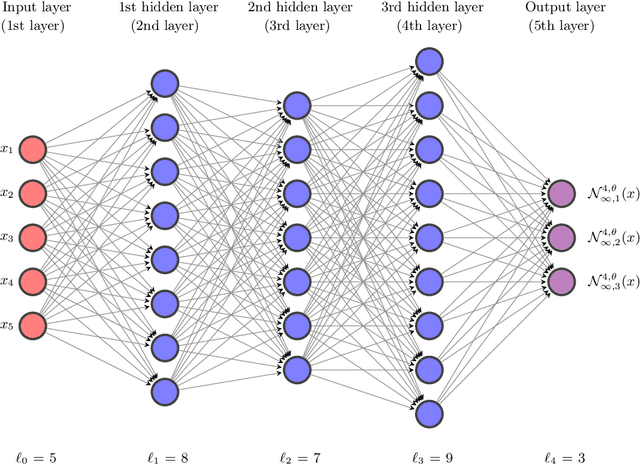Luca Scarpa
Convergence proof for stochastic gradient descent in the training of deep neural networks with ReLU activation for constant target functions
Dec 13, 2021
Abstract:In many numerical simulations stochastic gradient descent (SGD) type optimization methods perform very effectively in the training of deep neural networks (DNNs) but till this day it remains an open problem of research to provide a mathematical convergence analysis which rigorously explains the success of SGD type optimization methods in the training of DNNs. In this work we study SGD type optimization methods in the training of fully-connected feedforward DNNs with rectified linear unit (ReLU) activation. We first establish general regularity properties for the risk functions and their generalized gradient functions appearing in the training of such DNNs and, thereafter, we investigate the plain vanilla SGD optimization method in the training of such DNNs under the assumption that the target function under consideration is a constant function. Specifically, we prove under the assumption that the learning rates (the step sizes of the SGD optimization method) are sufficiently small but not $L^1$-summable and under the assumption that the target function is a constant function that the expectation of the riskof the considered SGD process converges in the training of such DNNs to zero as the number of SGD steps increases to infinity.
 Add to Chrome
Add to Chrome Add to Firefox
Add to Firefox Add to Edge
Add to Edge